Why is Belarus admitting Wagner leader and backing Russia against Ukraine?
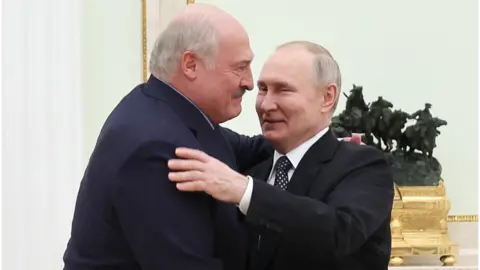 Getty Images
Getty ImagesRussia says Wagner leader Yevgeny Prigozhin has agreed to relocate to Belarus, after the mercenary group abandoned its rebellion.
Russian President Vladimir Putin also says the group's fighters can also move there, if they want to.
Belarus has also allowed Russian troops to invade Ukraine across its border and for Russian nuclear weapons to be put on its territory.
Where is Belarus and what kind of country is it?
Belarus is a landlocked eastern European country bordering both Russia and Ukraine.
It was a republic of the former Soviet Union until 1991.
Belarus has a population of nine million and is one of Europe's poorest countries. Many parts of the economy remain state-owned.
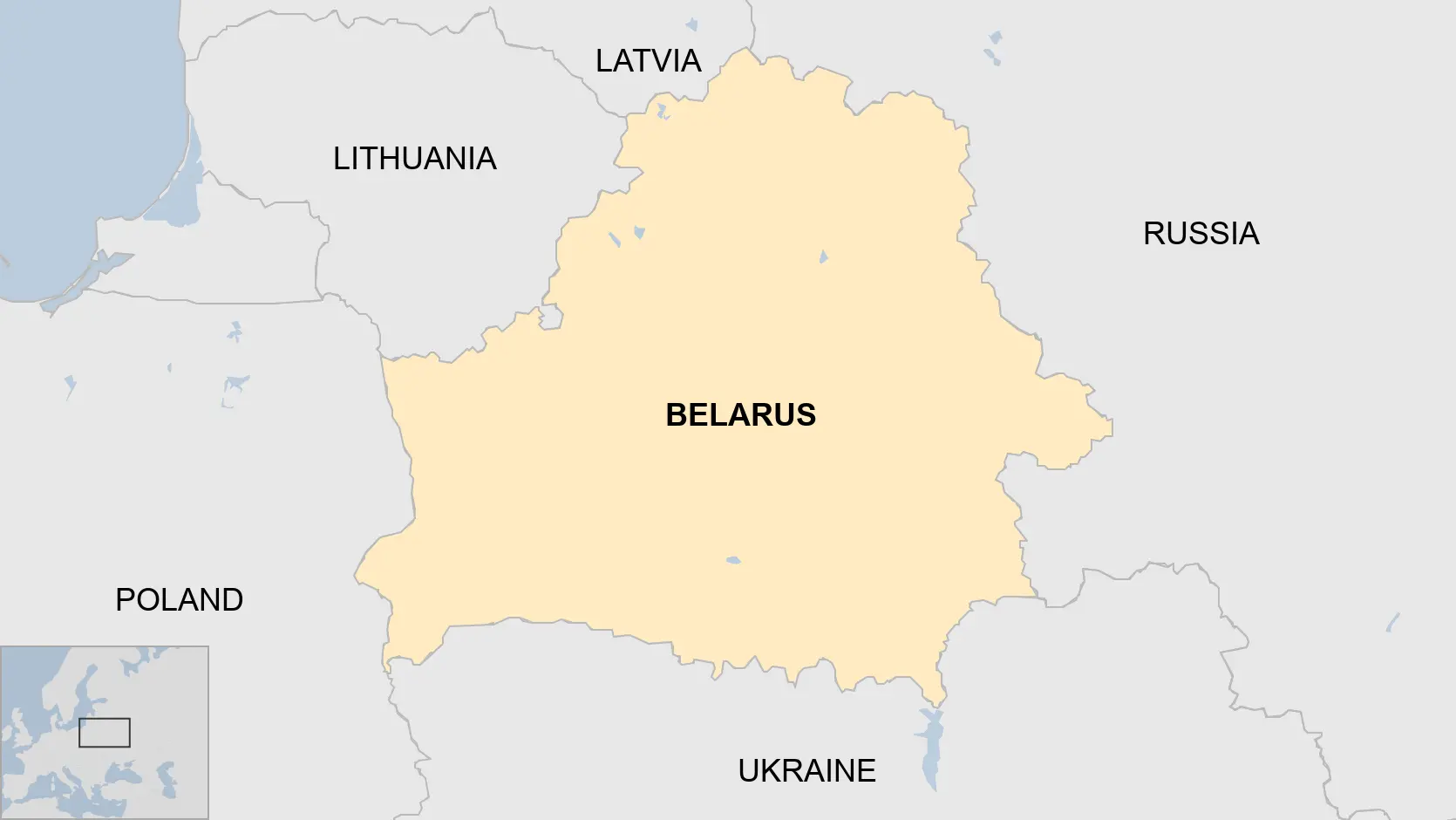
It has in the past been described as Europe's "last dictatorship". Its government has been heavily criticised for suppressing civil liberties and for restricting the press.
Its leader, Alexander Lukashenko, has been in office since 1994.
However, the UK, European Union (EU) and US no longer recognise Mr Lukashenko as president as they believe elections have been rigged.
The last presidential election in 2020 sparked months of protests, which were brutally suppressed by security forces.
The Kremlin backed Mr Lukashenko, offering to support its security forces and providing a $1.5bn emergency loan.
"Lukashenko burnt his bridges with the West, and he became isolated from his own people," says Dr Nigel Gould-Davies, a former UK ambassador to Belarus who is now a member of the International Institute for Strategic Studies think tank. "This made him even more dependent on Russia."
How has Belarus helped Russia with Wagner?
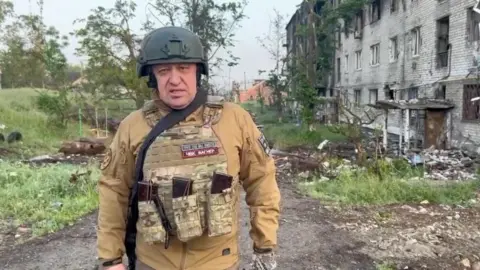 Reuters
ReutersMr Lukashenko is credited with acting as middleman in negotiations between Mr Prigozhin and Russia's President Vladimir Putin.
According to the Kremlin, Mr Prigozhin backed down, his troops abandoned their march on Moscow, and he agreed to move to Belarus after he negotiated directly with Mr Lukashenko.
However, exiled Belarusian opposition leader Svetlana Tikhanovskaya says allowing Mr Prigozhin to relocate to Belarus "adds another element of instability" in the country, which does not need "more criminals and bandits".
How did Russia use Belarus to invade Ukraine?
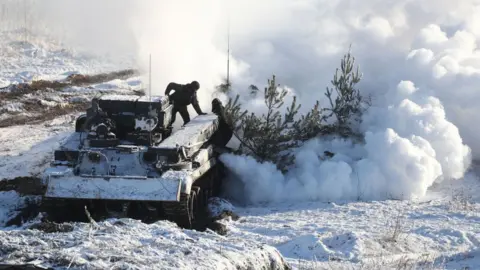 Getty Images
Getty ImagesIn 2021, Belarus signed a security treaty allowing Russian troops to be stationed there.
"Putin must have exerted a lot of pressure, because Lukashenko had always refused to host Russian forces before," says Emily Ferris of the Royal United Services Institute think-tank.
In January and February 2022, Russian forces held joint military drills in Belarus, and up to 30,000 troops then invaded Ukraine from its territory.
It was the shortest route to Ukraine's capital, Kyiv.
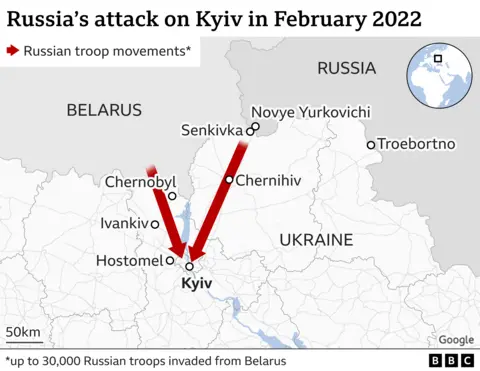
After the invasion, Belarus changed its status from being a neutral and non-nuclear country.
It then allowed Russia's forces to use its military airbases, to fire missiles from its territory, and to use its rail and road links.
In response, the UK, EU, US and Canada all imposed sanctions on Belarus, as well as Russia.
However, Mr Lukashenko has managed to keep Belarusian troops from fighting in Ukraine, says Oleg Ignatov of think-tank the International Crisis Group.
"He is doing everything to escape being involved in the war," he says. "This may be the last shred of legitimacy Lukashenko has."
What Russian nuclear weapons are in Belarus?
In March, President Putin said Russia would put tactical nuclear missiles in Belarus, to warn off anyone "thinking of inflicting a strategic defeat on us".
He said some Iskander missiles, which can carry nuclear warheads, had already been moved to Belarus.
 Reuters
ReutersTactical nuclear weapons contain small nuclear warheads designed to be used on the battlefield against specific targets.
Belarus had not had nuclear weapons on its soil since it agreed to remove them, in 1994.
Speaking on Russian state TV, Mr Lukashenko said he did not only let Russia station nuclear weapons in Belarus, "We demanded them back," he said.
Dr Gould-Davies says: "Putin didn't need to move these weapons to Belarus to strike Ukraine, but he may want more strike options against targets in the West."